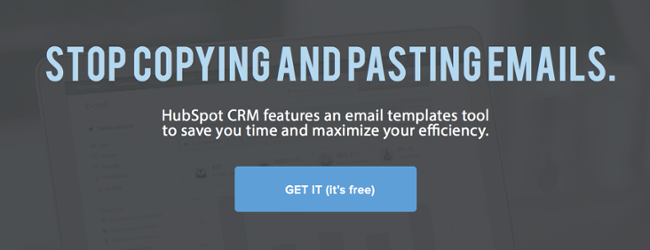Sales is interesting as a profession. When I first decided to enter the world of selling it was because of comments like "You talk a lot so sales is a good profession for you."

But what I did when I first got into sales and what I do today are two totally different things. The reason for this lies both in my own development but also very much in the way our world has changed.
We used to talk about how we sell, and now we're starting to discuss how customers buy. This is a huge shift that necessitates changes in seller behavior.
Are you considering a career in sales? If so, you might want to consider the following first. Here are six things I wish I would have known before I got into sales.
Things to Know When Getting Into Sales
1. Discounting is not sustainable.
When I started selling, I was very much focused on giving the customer a good deal. This often meant that I would negotiate price and introduce discounts.
But as time went on, I realized this wasn't a great strategy. One of the many bad things with discounting is that you end up in the same comparison field as your competitors. When you discount, you tell your customer that your product isn't actually worth a higher price -- so why wouldn't they sign on with a competitor?
2. Sales isn't really a numbers game.
I also used to think that sales was "a numbers game." But over time, I realized that approaching sales as a numbers game is to miss out on the core of selling.
Activity is important, but meaningful progress is more important. Your activity metrics only matter if you are focusing on the right opportunities. If you are booking meetings with "bad fits," the results will not present themselves just because you made 1,000 calls. Focusing on the right activity and not the amount of activities is key.
3. Helping trumps hard selling.
The Internet has changed sales. Customers now come to the table with more knowledge than ever before.
With this in mind, it has also become more and more apparent to me that helping customers is the way to close deals in the long run. Had I known this when I started selling almost 20 years ago, I would definitely have been more successful, and I would also invested less time chasing customers who would never buy.
In addition, when I first got into sales, I clung to the role of a seller. But as I gained experience, I realized that the customer doesn't have all the answers, and that my rightful role was as an advisor. What does it mean to be an advisor? You have to bring insights to the table (something I didn't do at first). Do your research and get to know the customer's business.
4. Sales and marketing are two sides of one coin.
When I started selling, I used to think that sales and marketing were two different things. I used to think that the role of marketers was to support sales with roll-ups and product sheets. We actually saw the marketers as our assistants.
None of this is true today, of course. In fact, a future proofed sales rep has a lot of marketing built into her. It's not Sales vs. Marketing -- it's Sales and Marketing. The more you can familiarize yourself with marketing techniques and best practices, the better.
5. Your slides are not a script.
When I started selling, I clinched to my slides like a script. I wasn't comfortable running a sales meeting without my trusty slides by my side. But what I learned before long is that the interaction with the customer is the most important part of any meeting, regardless of the tools used in your presentation. If your tools are becoming the focus instead of a helpful aid, it's time to reevaluate your use.
6. The status quo is often more dangerous than your competitors.
Before I started in sales, I wish I had known that the most common reason I would lose deals was to "no decision" and not to a competitor. Today, companies buy in groups. This means that we need to approach each stakeholder and enable them to decide together with their peers.
Another relevant point: For things to change there has to be friction. Without friction and unease, everything will stay the same. So dare to challenge the customer with a new point of view. It would have been incredibly valuable for me to know at the beginning of my sales career that challenging the customer is a good way of moving the dialogue in a new direction -- one that focuses on development, and not comfort.
Experienced salespeople: What do you wish you would have known before getting into sales? Share your thoughts in the comments.





![5 Roles Sales Decision Makers are Looking to Fill in 2023 [New Data]](https://www.hubspot.com/hubfs/interview%20for%20roles%20that%20sales%20decison%20makers%20are%20looking%20to%20fill%20in%202023.jpg)



![How to Become a Sales Rep [+Tips for First-Time Selling]](https://53.fs1.hubspotusercontent-na1.net/hubfs/53/how-to-be-a-good-sales-rep.jpg)
